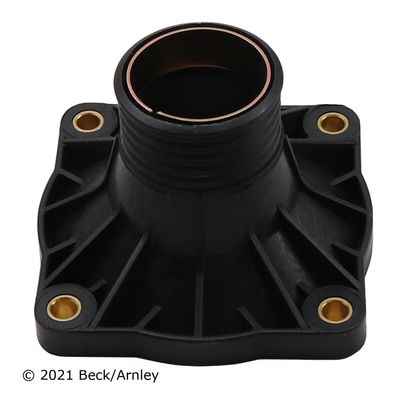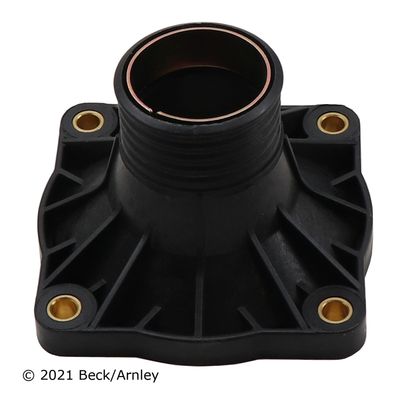Answer
Aug 15, 2024 - 08:04 AM
The ACDelco 15-81764 Thermostat Housing, like any automotive component, can fail due to a variety of factors. Here are some common causes of thermostat housing failure:
1. Material Degradation:- Heat and Temperature Cycles: Constant exposure to high engine temperatures and repeated heating and cooling cycles can cause the thermostat housing material (whether plastic or metal) to degrade over time. This can lead to warping, cracking, or even breaking of the housing.
- Corrosion: Metal thermostat housings, particularly those made of aluminum or other metals, can corrode over time, especially if the coolant is not maintained properly. Corrosion can weaken the housing, leading to leaks or structural failure.
- Over-Tightening Bolts: If the bolts securing the thermostat housing to the engine are over-tightened, it can cause the housing to crack or warp, leading to leaks.
- Gasket Failure: Improper installation of the gasket or O-ring between the thermostat housing and the engine block can cause leaks. If the gasket is not seated correctly, or if it's damaged or worn, coolant can seep out, leading to overheating or loss of coolant.
- Impact Damage: The thermostat housing can be damaged by physical impacts, such as from tools during maintenance or from debris on the road. A cracked or damaged housing will likely leak coolant.
- Thermal Stress: Rapid temperature changes or overheating can cause thermal stress, leading to cracks or warping in the thermostat housing, particularly in plastic housings.
- Contaminated Coolant: If the coolant is contaminated with dirt, debris, or other foreign substances, it can cause erosion or wear on the thermostat housing. Contaminants can also clog passages or corrode the housing over time.
- Improper Coolant Mixture: Using the wrong type of coolant or an improper coolant-to-water ratio can lead to corrosion or chemical reactions that damage the thermostat housing.
- Wear Over Time: Like any component, the thermostat housing can wear out over time. Aging can lead to material fatigue, especially if the vehicle has high mileage or has been exposed to harsh conditions.
- Failure of Connected Components: If the thermostat itself or the gasket fails, it can put additional stress on the thermostat housing, potentially leading to leaks or housing failure.
- Defects in Production: Although less common, manufacturing defects in the thermostat housing material or design could cause premature failure. These defects might not be immediately apparent but can lead to cracks, leaks, or other issues over time.
The ACDelco 15-81764 Thermostat Housing can fail due to material degradation, improper installation, physical damage, coolant contamination, aging and wear, or manufacturing defects. Regular maintenance, proper installation, and the use of the correct coolant can help extend the life of the thermostat housing and prevent premature failure. If you notice any signs of leaks, overheating, or visible damage to the thermostat housing, it’s important to address the issue promptly to avoid further engine damage.





Add New Comment